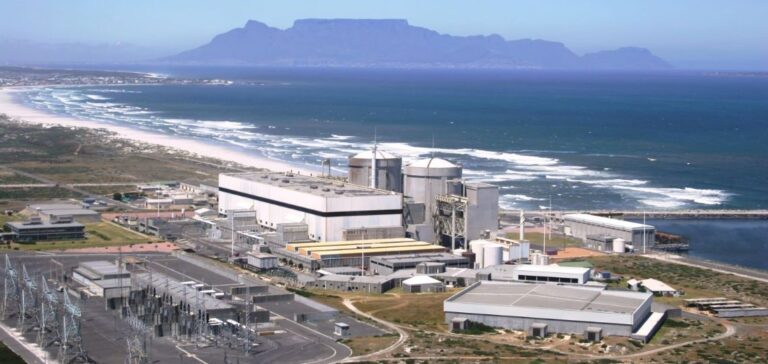Eskom, South Africa’s state-owned electricity company, has announced the temporary shutdown of unit 2 at the Koeberg nuclear power station, located in the southern part of the country. This decision follows an accidental trigger of the reactor during maintenance work on unit 1, which is currently offline as part of its Long Term Operation (LTO) programme. Eskom clarified that this measure was taken to ensure the safety and stability of the nuclear site.
Temporary shutdown with no impact on load-shedding
Despite the shutdown of unit 2, the company assured that this interruption would not lead to load-shedding, which had been suspended after level 6 load-shedding was implemented the previous week. The country’s electricity production capacity remains limited, partly due to ongoing maintenance operations. Eskom indicated that average production reached 7,032 MW in February 2025, well below the country’s energy needs.
Unit 2 disconnected from the grid
Koeberg is the only nuclear power station operating in Africa, contributing 5% to South Africa’s energy mix. However, the station has not been running at full capacity since unit 1 went into maintenance. The shutdown of unit 2 means that Koeberg is currently disconnected from the national grid, at least temporarily. This situation exacerbates the challenges of managing energy infrastructure in South Africa, particularly with the rising number of load-shedding events.
Extension prospects and nuclear development
The Koeberg-2 reactor, whose operating license expires in November 2025, is also subject to discussions regarding an extension of its operation beyond this deadline. A final decision by the national nuclear regulator (NRR) is expected this year. Meanwhile, the South African government plans to increase the country’s nuclear capacity to 21,000 MW by 2050.






















